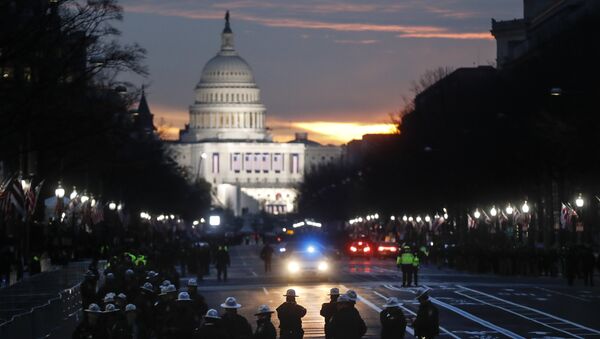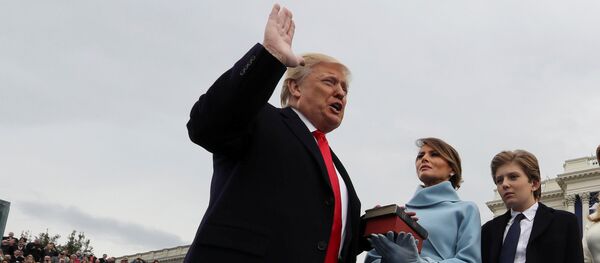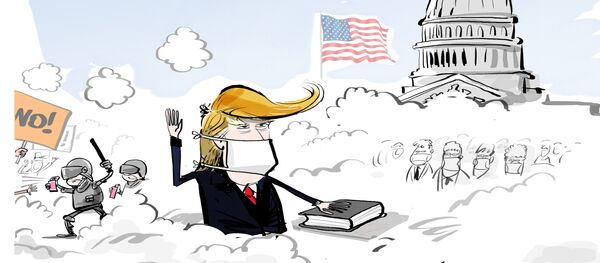On Friday, the air in the city of Washington DC is electric as Donald Trump is sworn in as the 45th President of the United States. In the United States, Sahakyan recalled, "Trump has promised to abolish up to 70% of the laws passed under Obama." Efforts in that direction have already begun, starting with the Senate proceedings aimed at repealing and replacing Obamacare.
Abroad, Sahakyan added, Trump's election in November was met with an eclectic mix of reactions, ranging from concern and outrage on one end and delight and hope on the other.
For Europe's political establishment, the journalist noted, the reaction was mostly one of concern. "With Trump's arrival, Europe's biggest concern has been about the future of NATO and the risk that the US would veto the TTIP [trade pact]." In a telephone conversation with NATO Secretary General Jens Stoltenberg soon after the election, Trump attempted to allay any fears by stressing the importance of the alliance. Still, he has since reiterated his idea that NATO is an obsolete organization.
Good talk with US President-elect @realDonaldTrump. We both underlined the enduring importance of #NATO and increased defence spending.
— Jens Stoltenberg (@jensstoltenberg) 18 ноября 2016 г.
On the NATO issue, Spanish political scientist Dr. Armando Fernandez Steinko told Sputnik that "Trump recognizes the US's inability to continue to finance its armed forces at the current level. This is evidence of realism, which I believe is present among whatever fantasies Trump might have."
This, Steinko noted, would lead to "considerable tensions in NATO, and to a greater sense of pragmatism in international relations." The danger, the observer added, is that "Trump has promised a great deal to his voters, and that they now place great hopes in him, even though many of the promises cannot be fulfilled."
"In Russia," Sahakyan wrote, "many associate Trump's arrival with a possible warming of Russian-US relations. Indeed, he has often spoken positively of President Putin, called for the restoration of friendly relations with Moscow and for cooperation in the fight against terrorism," something that caused outrage in many circles, Republican and Democrat, in the US. "So far, serious signals from the new administration have yet to come," the journalist noted, but "the conditions for it are there."
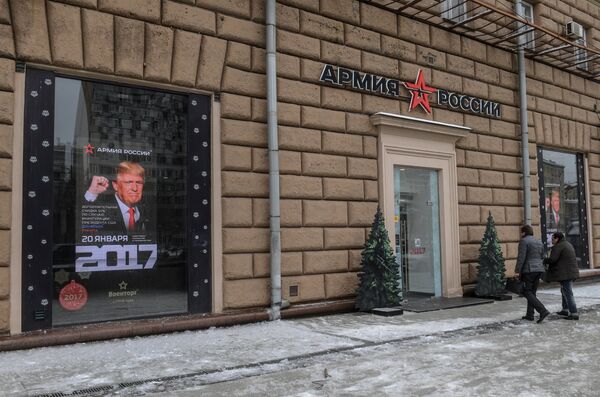
Speaking to Sputnik, Vladimir Grinyuk, a senior fellow at the Center for Japanese Studies at the Russian Academy of Sciences' Institute of Far East Studies, suggested that it may prove to be very difficult for Japanese Prime Minister Shinzo Abe to maintain a balance between the US and Russia under Trump.
"Abe will try to maneuver between these two mutually exclusive directions," Grinyuk noted. "On the one hand, he is determined to develop relations with Moscow. On the other, Japan is tied up with the United States and is a member of the G7" economic club." Shinzo Abe met with Trump in mid-November, and has promised to schedule another meeting as soon as possible.
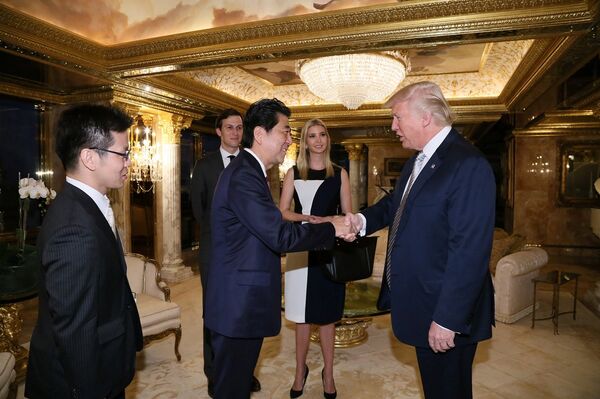
Finally, Sahakyan recalled, China, perhaps more than anyone, was "a little more than wary of Trump's presidency." After all, the journalist noted, "Trump had criticized his predecessor, Barack Obama, for his 'soft' reaction to China's expansive efforts, including in the strategically important South China Sea."
Speaking to Sputnik, Institute of Far East Studies expert Dmitri Mosyakov emphasized that "Trump determines for himself which international conflicts the US will continue to engage in, which ones it will reconsider and which it will remove altogether from its list. China is now the main rival of the United States, and the South China Sea issue is a convenient pretext to put pressure on Beijing."
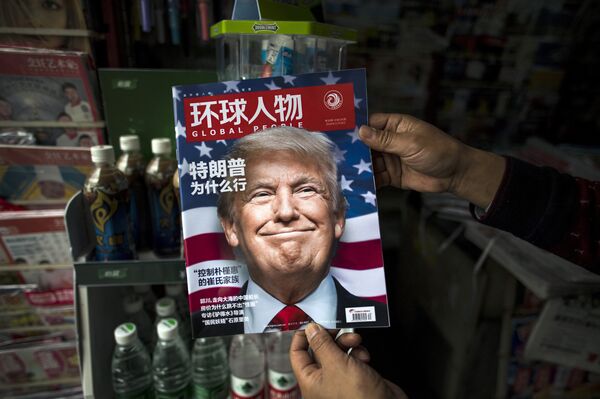
Fortunately, Sahakyan stressed, "we shouldn't expect that all of Trump's anti-Chinese campaign rhetoric will be turned into real policy. For example, the introduction of import tariffs on Chinese goods is hardly feasible. Such a measure would not just do damage to world trade, but would be absurd, since a significant portion of the $480 billion in China's exports to the US consist of goods made by multinational firms containing US, Japanese and South Korean technology and components, and which are merely assembled in China."
Ultimately, the journalist suggested, the first real chances to assess Trump's foreign policy chops and his intentions in the global arena will be the NATO summit in Brussels in the spring, and the G7 summit that follows in Italy in May. "If Trump shows up, of course," he jokingly concluded.
